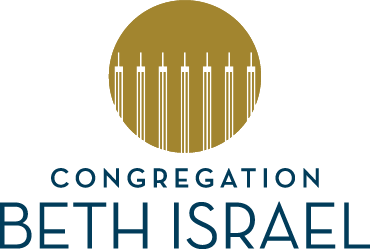Finding Our Voice

Finding Our Voice
From the desk of Rabbi David Lyon
I was watching late TV recently. I found a channel with an evangelical preacher carrying on about virtue and sin. I know something about the subject, too, so I tuned it to see what he knew. Apparently, he knew a lot more than I did. He spoke with absolute certainty about what God wanted for men and women. He was expressive, resolute, and almost convincing. But, then he did something that really took me aback. With the same level of certainty, he also spoke for the devil. I thought to myself, he really knows his stuff. He was spouting and spitting about virtues and sins as easily as you and I talk about the daily news. I wasn’t offended because he became hysterical; I was disappointed because he spoke well beyond his human limitations. Every day, I read something in Jewish texts. It might be a little Torah, or it might be on a subject of importance to our congregation. It’s all Torah. But never would I assume to know with absolute certainty what God is saying or not saying. Only with some authority and training am I able to interpret what has been handed down to me for the sake of lessons that can guide us to greater human virtue and satisfaction. I could no more make you do anything against your will than I could make an August day in Houston, dry and comfortable.
There is wisdom in Judaism’s ability to work with what God has given so that we can enrich our lives through carefully chosen human tasks. We’ll make mistakes. That’s part of life and learning. And we’ll try harder next time to do better than we did before. That’s the meaning I discover in what is written in this week’s Torah portion, Shofetim, in Deuteronomy 17:2. This verse begins, “If there is found among you…a man or woman who has affronted the Lord your God and transgressed His covenant…” but it doesn’t stop there. If it had, we could have stood on our own high horse to spout and spit about all the ways we have affronted and transgressed against God’s covenant. Thankfully, the verse goes on to explain how one could possibly transgress God’s covenant, by “turning to the worship of other gods and bowing down to them…something I never commanded.”
This instruction to the Israelites warned only against turning to the worship of false gods. A false god can be a graven image or an idol; it can also be something that meets only our basest needs for food, physical desire, and pleasure. They are things that steer us off the straight path where we should find mitzvah (good deeds/commandments), simcha (joy), and shalom (peace and contentment). If we fall prey to those things that are not commanded us, we are apt to worship them because we think they make us better, wiser, or stronger. Torah makes it possible to worship God and to participate in a covenant where human choices can be rewarded in stronger family life and a richer (wiser) community; and human frailties can be forgiven, and new paths can be found. It’s a process and a partnership. It’s something that each of us must discover. Sometimes it’s through trial and error. Sometimes it’s through faith. Sometimes it’s through both. But, rarely, if ever, is it through the booming voice of someone who is adamant about his own authority over good and evil.
Now, it’s clear why this is also the portion that begins with the words, “Justice, justice shall you pursue” (Deuteronomy 16:20). Our tradition teaches us that if we do not find justice in one court then we must pursue it in another. In 2021, it can also mean that it’s time to change the channel. Finding the right voice for our times is critical. Whose voice, alive or gone, is guiding you, today? What Torah verse or teaching is essential to you?
L’Shalom,
![]()
